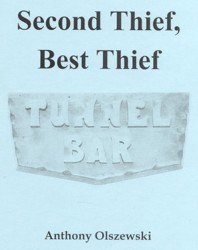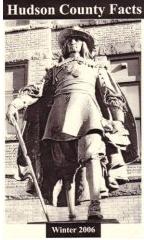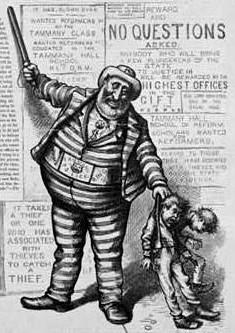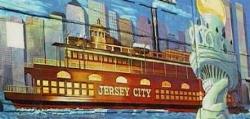 |  |  |
 |
|  |
 |  |  |
 |  |  |
 |
|  |
 |  |  |

|
|
A day after philanthropist Herbert Axelrod was declared an international fugitive, appraisers and experts in the world of rare musical instruments said the alleged tax cheat grossly inflated the value of instruments involved in the two blockbuster deals for which he is most celebrated.
The transactions in question are Axelrod's 1998 donation of a matched quartet of stringed instruments by the Italian master Antonio Stradivari to the Smithsonian Institution and his 2003 sale of 30 strings, including 13 Stradivarius violins, to the New Jersey Symphony Orchestra.
In each case, Axelrod claimed the items were collectively worth $50 million. He closed the sale with the NJSO for $18 million, winning him wide praise as a munificent benefactor who rejected higher bids from abroad to keep the instruments in New Jersey.
Yesterday three respected experts in the field called the $50 million valuations wildly inflated and questioned whether the 76-year-old publishing tycoon, now taking refuge in Cuba, used the lofty appraisals for massive tax write-offs, much as someone writes off the cost of a donated car.
Axelrod is charged with conspiracy to defraud the IRS and aiding and abetting the subscribing of a false tax return, in connection with his business dealings in the 1990s.
"I'm not surprised to see him indicted," said Stefan Hersh, a professor at Roosevelt University in Chicago and a longtime consultant to those who buy and sell rare stringed instruments. "If his ultimate plan had always been to achieve a maximized tax benefit, this would be the perfect way to go about it."
It could not be determined whether Axelrod did in fact write off his donation to the Smithsonian or if he took some tax benefit from last year's high-profile deal with the symphony orchestra.
Federal authorities have declined to say whether their investigation extends beyond the charges handed up in an indictment last week. In that case, Axelrod is accused of spiriting more than $1 million in undeclared cash into Swiss bank accounts.
Axelrod was due for arraignment in federal court in Trenton Wednesday afternoon. He didn't show.
Assistant U.S. Attorney Michael Guadagno subsequently said Axelrod is staying at a four-star resort, the Hemingway Marina, on the outskirts of Havana and that Axelrod had confided to an associate he had no intention of returning to face the charges. The United States does not have an extradition treaty with Cuba.
Axelrod, who transformed a love of tropical fish into the world's largest publisher of pet-care books, recently sold off more than a dozen properties in Florida and his $6.5 million oceanside home in Deal, Monmouth County, Guadagno said.
Axelrod sold his Neptune business, TFH Publications, in 1997 for $70 million in cash and a $10 million loan.
His indictment and flight to Cuba have sent shock waves through the ranks of the NJSO, for which Axelrod had been a major benefactor.
Orchestra officials, who previously had said they did not believe Axelrod's instruments were worth $50 million, yesterday defended the $18 million purchase, saying all items were carefully vetted.
"The orchestra subjected each of the instruments to several examinations by independent experts familiar with rare stringed instruments," the statement said. "These examinations were designed to verify their authenticity, provenance and chain of title, obtain an assessment of their condition and provide estimates of their value. We are confident in the findings of these experts."
In an interview yesterday, Victor Parsonnet, chairman of the board of the NJSO, said the orchestra had not been contacted by federal investigators about the arrangement.
The experts who spoke to The Star-Ledger yesterday said they believed the $18 million price tag for Axelrod's instruments, while perhaps slightly high, was not outlandish. Just one of the three -- Christopher Reuning, a Boston-based violin dealer with Reuning & Son Violins -- said definitively that the instruments should have come cheaper.
"I would say quite frankly that when I look at the list of instruments, I don't come up with $18 million worth of value," Reuning said. "I think it's excessive."
Added violin dealer Robert Bein, a co-founder of Chicago-based Bein & Fushi: "My impression of the New Jersey Symphony is that they paid dearly, probably high for what they got, but it may have some relationship to their normal value in the universe."
The experts were far more critical of Axelrod's initial $50 million valuation, advanced by both the elderly philanthropist and his longtime business associate, New York-based violin dealer Dietmar Machold.
Leading up to the NJSO sale, Axelrod and Machold said they had been offered more than $50 million for the collection of instruments by the Austrian government.
Hersh, the Roosevelt University professor, called the $50 million figure "preposterous." Reuning termed the valuation "ludicrous."
The two men, along with Bein, were equally critical of the $50 million valuation that Axelrod placed on the Stradivari quartet he donated to the Smithsonian's National Museum of American History five years earlier.
"That was a joke. Totally," Bein said, estimating the quartet's value at less than $15 million. "That was another exaggeration, but he tried to create the value through marketing, making claims in the newspapers. In the real cold light of day, it couldn't be supported."
The experts said that opinion was widely shared in the small, exclusive field of rare stringed instruments, though it was not widely reported. In general, the experts said, those in the field are loath to speak out against one another, and Axelrod, they said, was known as a litigious man with deep pockets.
Valeska Hilbig, a spokeswoman for the Smithsonian museum, said officials are confident of the quartet's value and authenticity. "We've had these instruments for years, and we've had them verified," Hilbig said.
Offering a counterpoint to those critical of Axelrod was Rene Morel, a New York violin dealer who worked frequently with the multimillionaire until the early 1990s, when Axelrod began his association with Machold.
"I don't want to protect him, but because he is flamboyant, very much up to the ladies, he created enemies," Morel said. "I am convinced what he did with the NJSO, without seeing the instruments, was a very, very generous gift. In my book it was a gift, not a sale, because the price was so reasonable."
Staff writer Willa Conrad contributed to this report.

| eMachine Power Supplies are a TIME BOMB!
Don't Trust External Hard Drives! Reset Windows XP - Vista Password Reinstalling Windows XP Password Computer Noise |
|
|
The Kean response resembled a skinny alley cat rummaging through a garbage can. |
|
| From a short story at UBERHIPPY |

|
|

|
Print Edition Now on Sale at
Amazon
Google Book Search
Inquiries Welcome |
 Shines the Light of Reason on New Jersey Politics |
| Police question website operator over posting of incident reports |
| Hudson County Facts |
|
Bret Schundler |
|
The 2001 Race for Governor of New Jersey |

|
 Bruce Springsteen's Jersey Shore Rock Haven! |
 Your Ancestors' Story |